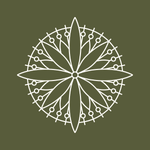What is naturopathy?
Naturopathy is a form of complementary medicine based on the idea that the body has an innate wisdom and that illness results when this natural wisdom is blocked or out of balance. Naturopaths strive to stimulate this innate healing power in each individual, using a vast array of natural therapies, including colonic irrigation, herbal medicine, nutritional advice, homoeopathy, acupuncture and many others. Naturopathy offers a range of benefits, including the ability to treat a variety of conditions, including:
- Digestive issues
- Cardiovascular disease
- Hormonal problems
- High blood pressure
- Diabetes
- Stress
- Anxiety
- Depression
- Fatigue
- Musculoskeletal pain
- Infertility
- Premenstrual syndrome
Qualified naturopaths in the La Trobe University area can get continuous support and access to industry news and trends from joining the following professional associations:
- Australian Register of Naturopaths and Herbalists (ARONAH)
- Australian Naturopathic Practitioners Association (ANPA)
- Complementary Medicine Association (CMA)
- Australian Natural Therapists’ Association (ANTA)
- Naturopaths & Herbalists Association of Australia (NHAA)
- Australian Traditional Medicine Society (ATMS)
- International Institute for Complementary Therapists (IICT)
Should you study naturopathy?
Naturopathy focuses on treating the whole person of a patient, not merely the symptoms they exhibit. Taking a course in this area will equip you with the skills and tools needed to restore bodily functions and help others on their journey to wellbeing. Naturopaths have certain personality traits that set them apart. These are just a few of the personal qualities typical to naturopaths that will propel them to success:
- Open-minded and enthusiastic to learn varying factors that can affect health, as well as new methods to improve patient outcomes.
- Excellent problem-solving skills that allow them to identify the source of a health concern and develop an individualized treatment plan.
- Passionate about helping others achieve their health goals and educating them on the importance of a healthy lifestyle to longevity.
- Good listening and communication skills in order to be able to understand their patients' concerns and clearly explain to patients the different naturopathic approaches.
- Curious about a wide range of holistic principles that apply to the mind, body and spirit in order to make positive changes to the lives of others.
If you have these personal qualities, don't stop reading because you're about to discover what training programs can get you a qualification in the field of naturopathy.
What are the course and study options for naturopathy in La Trobe University?
If you're looking to specialise in naturopathy, there are different courses and schools available in the La Trobe University area that can prepare you for the profession. Some of them are delivered on campus, while others you can take online or through a blended learning system.
A bachelor's degree in naturopathy is a 4-year program that includes a hands-on practical component. Students learn about life and social sciences before being guided through a variety of naturopathic therapies.
By continuing their education, naturopaths can obtain a doctorate in naturopathy and become registered naturopathic doctors. They can pursue a postgraduate degree in a specialised field, such as herbal medicine, acupuncture or homeopathy, or they may build on their existing skillset.
Is there anything that prevents you from studying at the same time every day? You'll be relieved to learn that many naturopathic schools allow their students greater flexibility in terms of when they study by offering on-campus and online courses. So, you may choose to study full-time or part-time, as well as the study only during evenings or weekends.
If you're all set to become a registered naturopath, go to the top of the page to see a thorough list of naturopathic courses available at the colleges and universities located in the La Trobe University area. For more information about a certain program, you may contact the institution of your choice directly.
What happens after you complete your naturopathy course in La Trobe University?
Some of the career paths for naturopaths include working in hospitals, sports medicine clinics, health food stores, naturopathic pharmacies, spas and community health centres. They may work for the general public or in private businesses, concentrating on workplace health and safety regulations.
Running a private practice is another option for naturopaths. Working as an independent business owner allows you greater freedom to manage your schedule and focus on certain services, even offering online consultations. If you opt for this path, Natural Therapy Pages can help you develop your client base by allowing you to list your services on the practitioner listing page.
Naturopaths can also choose to do further training by studying naturopathic oncology, paediatrics or other courses related to their field. If you wish to expand your skill set and boost your credentials, the following areas of study are worth considering:








